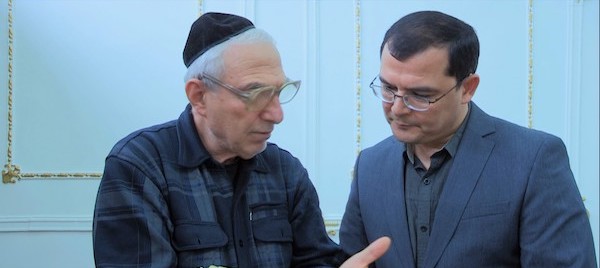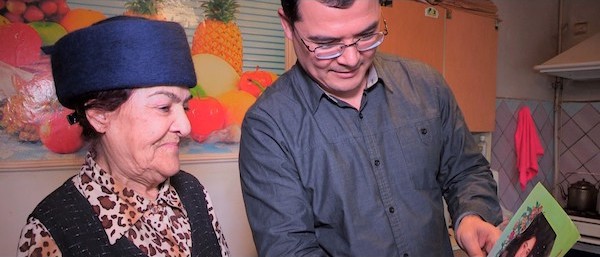A Holistic Approach to Law and Islam
By CSLR | Emory Law | Jan 25, 2021 12:01:00 AM

CSLR Scholar Profile: Dr. Rahimjon Abdugafurov
This interview is part of a new series of discussions with distinguished CSLR alumni working at the intersections of law and religion in academic, legal, and religious professions
Dr. Rahimjon Abdugafurov is a postdoctoral fellow in Islamic legal studies at CSLR, where he serves as a senior lecturer and deputy director of the Law and Islam program. Abdugafurov speaks seven languages and received his PhD from Emory’s Islamic Civilizations Studies Program with an additional certificate in Jewish Studies from the Tam Institute for Jewish Studies. He co-produced a documentary film entitled, “Bukharan Jews: Memories of a Disappearing Past,” and has published articles on Sufism, Islamic law, and Central Asian studies.
Abdugafurov works closely at CSLR with Dr. Abdullahi Ahmed An-Na’im, who is currently leading a major research project on Sharia law and Islamic political theory. He is also studying Muslim polygynous practices in Central Asia – a practice that he views as inconsistent with universal principles of human equality. We asked Rahimjon to tell us more about his research and work at CSLR.
Is there an over-arching theme that informs your research in Islamic legal studies?
I have always been intrigued by scholarly works that take a holistic approach to understanding humans’ bodily, intellectual, and spiritual characteristics. As an undergraduate, I wrote my thesis on the humanistic thought of Jalal al-Din Rumi – a famous Persian thinker – and subsequently wrote my PhD dissertation on the Islamic religious humanism of the fourteenth century Sufi theologian and philosopher ‘Abd al-Karim al-Jili of Iraq and Yemen. I have been very fortunate to have the advice of great scholars at Emory, such as Professors Rkia Cornell, Carrie Wickham, Vincent Cornell, Abdullahi Ahmed An-Na’im, David Blumenthal, and John Witte, to name a few.
What are some of the insights you’ve gained from studying these historical figures, and how are they relevant to legal issues today?
I see a direct connection between their holistic approaches to understanding human beings and contemporary social justice issues. For example, Abd al-Karim al-Jili of Iraq and Yemen had profound insights about human equality, freedom, and human potential. I am not only fascinated by the significance of those insights for his fourteenth-century context, but also interested in understanding their significance for the present day. Specifically, how should Muslims today view the practice of polygyny in light of women’s equality?
I am also deeply committed to studying Muslim relations with non-Muslims. In addition to scholarly articles, research projects, and manuscript preparations, I find non-traditional forms of digital scholarship effective for learning and teaching about Muslim relations with non-Muslim communities. In this regard, a documentary film I co-produced sheds light on the lives of minority Bukharan Jews living in Central Asia. Similarly, I was recently awarded a grant from the American Academy of Religion to study migrant forms of religiosity among Uzbek Muslims living in Moscow and New York.

Looking forward, can you tell us more about your newest research project?
The research project I am conducting under the mentorship of Professor An-Na’im, a luminary of Islamic legal studies and human rights, explores the interpretation and reception of certain universal concepts in different Muslim societies. By dividing the intellectual history of Muslim societies into five periods, I examine what the prevalence and reception of these ideas says about the overall culture or environment of that society. In my research, teaching, and community services in the future, I remain committed to the humanistic ideas of equality, freedom, and human potential, and hope to contribute to better a understanding of Muslims relations with non-Muslims.

